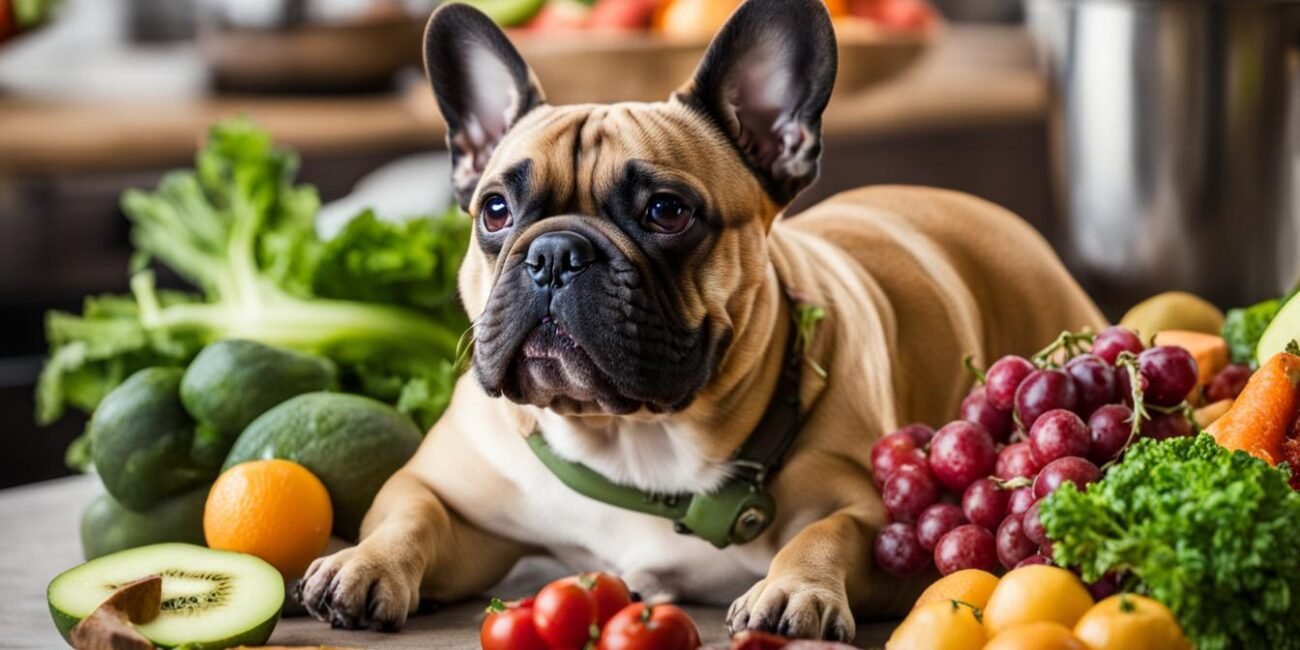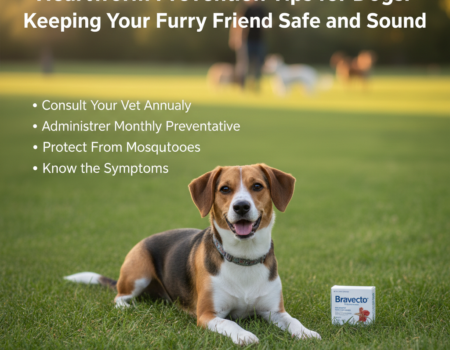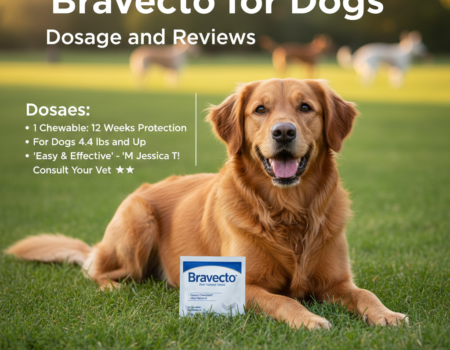Best French Bulldog Food Choices for Health & Vitality
Did you know that French Bulldogs are one of the most popular dog breeds in the United States? These adorable, affectionate pups have captured the hearts of pet owners everywhere. But when it comes to their diet, choosing the right food can make a world of difference in their health and vitality.
Key Takeaways:
- Optimal nutrition is crucial for the health and vitality of French Bulldogs.
- Consider your Frenchie’s specific dietary needs, including macronutrient balance and age-related requirements.
- Avoid commercial dog foods with additives, preservatives, and low-quality ingredients.
- Chicken and grain-free options are recommended for French Bulldogs to prevent allergies and digestive issues.
- Price and quality should be weighed when choosing the best food for your Frenchie.
Factors to Consider When Choosing French Bulldog Food
When it comes to choosing the best food for your beloved French Bulldog, there are several important factors to consider. Providing them with high-quality nutrition is essential for their overall health and well-being. Let’s explore the key considerations when it comes to selecting the right food for your Frenchie.
- High-Quality Ingredients: Look for foods that prioritize high-quality ingredients. Opt for options that contain real meat or fish as the main protein source, without any animal by-products or meat meal. Avoid fillers like wheat and corn, which offer limited nutritional value.
- Macronutrient Content: Ensure that the food you choose provides a balanced macronutrient content for your French Bulldog’s specific needs. This means an appropriate ratio of proteins, fats, and carbohydrates. It’s important to consult with your veterinarian to determine the ideal macronutrient percentages for your Frenchie.
- Avoid Additives and Preservatives: Opt for foods that are free from artificial additives, preservatives, and flavors. These synthetic ingredients can potentially harm your Frenchie’s health in the long run. Instead, choose foods with natural and recognizable ingredients.
By considering these factors, you can make an informed decision and select a high-quality diet that meets the unique nutritional requirements of your French Bulldog. Remember, optimal nutrition is key to supporting their health, vitality, and overall happiness.
Chicken and Grain-Free Options for French Bulldogs
When it comes to the dietary needs of French Bulldogs, it’s important to be mindful of potential allergies and sensitivities they may have. French Bulldogs are known for being sensitive to chicken and grains, so it’s recommended to choose chicken and grain-free options to avoid any possible allergic reactions or digestive issues.
Fortunately, many premium dog food brands offer specially formulated chicken-free and grain-free options that are perfect for French Bulldogs. These alternatives often use high-quality proteins such as beef, lamb, fish, or duck, which provide the necessary nutrients to support your Frenchie’s overall health.
By eliminating chicken and grains from your Frenchie’s diet, you can help prevent potential health problems and promote a better quality of life. These specialized dog foods are designed to provide optimal nutrition for French Bulldogs while avoiding common allergens that may trigger allergies or sensitivities.
Benefits of Chicken and Grain-Free Options:
- Reduced risk of allergic reactions: Choosing chicken and grain-free options minimizes the chances of your Frenchie experiencing adverse reactions, such as itching, rashes, or digestive discomfort.
- Suitable for sensitive stomachs: Some French Bulldogs have sensitive stomachs, making it essential to provide them with easily digestible foods like chicken and grain-free options to prevent gastrointestinal issues.
- Avoiding common allergens: Chicken and grains are known to be common allergens for dogs, so opting for chicken and grain-free options can help avoid potential allergic reactions and maintain your Frenchie’s well-being.
- Ensuring a balanced diet: Chicken and grain-free options often contain a variety of alternative protein sources, ensuring that your Frenchie receives a well-rounded and balanced diet that meets their nutritional needs.
By selecting chicken and grain-free options, you prioritize your French Bulldog’s health and cater to their unique dietary requirements. It’s always essential to consult with your veterinarian to determine the most suitable food options for your Frenchie’s specific needs and ensure they enjoy a healthy and happy life.
Consideration for Price and Quality of French Bulldog Food
When it comes to choosing the right food for your beloved French Bulldog, considering both the price and quality is essential. While expensive dog food brands might seem like the obvious choice for high-quality nutrition, it’s not always the case. Some well-known brands may charge exorbitant prices for food that lacks the necessary nutritional value.
So, how can you ensure that you’re getting affordable high-quality dog food and avoiding overpriced low-quality options?
The key lies in carefully examining the ingredients list. Look for dog food that contains high-quality ingredients without any fillers or artificial additives. Brands that prioritize real meat, whole grains, and natural ingredients often offer better quality food for a more reasonable price. Don’t be swayed by the brand name alone; focus on the actual nutritional value the food provides.
Finding affordable high-quality dog food is possible with a little research. Look for brands that prioritize real, wholesome ingredients without the unnecessary fillers and artificial additives.”
While it’s true that premium dog food might come at a higher cost, it doesn’t mean that every expensive brand guarantees better quality. By exploring less-known brands that prioritize the dog’s health and use top-notch ingredients, you can find affordable options that offer the optimal nutrition your French Bulldog needs.
Remember, investing in high-quality dog food for your furry companion can actually save you money in the long run. When your French Bulldog eats nutritious food, they are less prone to health issues and costly vet visits.
To summarize, don’t be swayed by price tags alone when choosing dog food for your French Bulldog. Price and quality are both crucial considerations, so read the ingredient list, prioritize high-quality ingredients, and opt for affordable options that provide the optimal nutrition your furry friend deserves.
Size and Texture Considerations for French Bulldog Food
When it comes to choosing food for your French Bulldog, size and texture matter. French Bulldogs are small dogs with unique needs, so it’s important to select a food that is specifically designed for their size. The size of the kibble plays a significant role in your Frenchie’s eating experience and overall well-being.
Choosing the right size of kibble
Look for small or medium-sized kibbles that are easy for your Frenchie to chew and swallow. Kibble that is too small may not require chewing, which can lead to the food being inhaled and pose a choking hazard. On the other hand, kibble that is too large can make it difficult for your Frenchie to eat comfortably. Finding a size that is just right for your dog’s comfort and safety is essential.
| Kibble Size | Advantages | Considerations |
|---|---|---|
| Small kibble | Easy to chew and swallow | May pose a choking hazard if too small |
| Medium-sized kibble | Provides a balance between chewing and swallowing | Ensure it’s not too large for your Frenchie |
The importance of suitable food for small dogs
French Bulldogs have smaller jaws and mouths compared to larger breeds, so it’s crucial to choose a food that is suitable for their unique anatomy. Opting for a food specifically formulated for small dogs ensures that the kibble is appropriately sized and shaped to accommodate their smaller mouths, making it easier for them to eat and enjoy their meals.
The kibble size and shape should be compatible with the size of the French Bulldog’s mouth. It should facilitate chewing and swallowing, ensuring a pleasant mealtime experience.”
Avoiding choking hazards
French Bulldogs may have a tendency to eat quickly, making them more susceptible to choking hazards. It’s important to choose food that encourages slower eating and prevents them from gobbling up kibble without proper chewing. Slow feeder bowls or puzzle feeders can also be great options to promote a healthier pace of eating and reduce the risk of choking.
In conclusion, when selecting food for your French Bulldog, consider their small size and unique jaw structure. Choose a food that provides small or medium-sized kibble, ensuring it is easy to chew and swallow without posing a choking hazard. By paying attention to these size and texture considerations, you can provide your Frenchie with a mealtime experience that is safe, enjoyable, and tailored to their specific needs.
Variety in Flavors for French Bulldog Food
Providing variety in flavors is important for French Bulldogs to avoid a monotonous diet and ensure they receive a wide range of nutrients. While it’s crucial to find a food that suits your Frenchie’s needs, you can change flavors within the same brand as long as they have similar nutritional values. This allows your dog to experience new tastes and textures, keeping mealtime interesting. If you notice that your Frenchie has a greater appetite when introducing a new flavor, it’s a good sign that they enjoy the variety in their diet.
Introducing a variety of flavors offers several benefits for your French Bulldog’s health and overall well-being. Here are a few reasons why changing flavors can enhance your Frenchie’s appetite and nutritional intake:
Variety Enhances Nutritional Intake
Offering different flavors of dog food ensures that your French Bulldog receives a diverse range of nutrients. Each flavor is likely to contain various ingredients, providing different vitamins, minerals, proteins, and fats. By rotating flavors, you can help prevent nutrient deficiencies and maintain your Frenchie’s optimal health.
Maintains Interest in Mealtimes
Just like humans, dogs can get bored with the same food every day. Introducing new flavors helps keep your Frenchie engaged during mealtime. It adds excitement to their feeding routine, making each meal a more enjoyable experience for your furry friend.
Changing flavors within the same brand allows your Frenchie to explore different tastes and textures, creating a well-rounded dining experience. This variety can help alleviate picky eating habits and encourage a healthy appetite.
Prevents Sensitivities and Allergies
Exposing your French Bulldog to a variety of flavors can help prevent sensitivities and allergies to specific ingredients. By constantly introducing new proteins and ingredients into their diet, you reduce the risk of your Frenchie developing food allergies or intolerances. However, if you notice any signs of allergies or digestive issues, consult with your vet to determine the cause and find suitable alternatives.
Choosing the Right Dog Food
When selecting dog food with a variety of flavors, it’s important to ensure that the nutritional value remains consistent. Look for brands that offer a wide range of flavors within their product line, ensuring that each flavor has similar high-quality ingredients and balanced nutritional content.
| Brand | Flavors Available | Nutritional Value |
|---|---|---|
| Brand A | Chicken, Beef, Fish | High-quality proteins, balanced macronutrients |
| Brand B | Lamb, Duck, Turkey | Grain-free, natural ingredients |
| Brand C | Salmon, Venison, Bison | Novel proteins, limited ingredient formula |
Remember to consult with your veterinarian to ensure the chosen dog food fulfills your Frenchie’s specific dietary needs and supports their overall health.
Monitoring Your French Bulldog’s Stool for Dietary Health
Your French Bulldog’s stool is a valuable indicator of their overall dietary health. By closely observing their stool, you can identify potential issues and make necessary adjustments to their diet. A healthy dog stool should be completely solid and easily picked up with a bag, indicating that your Frenchie’s digestive system is functioning properly.
If you notice that your French Bulldog consistently has loose stools or struggles to defecate, it may be a sign that their diet needs adjustment. Loose stools can indicate dietary issues such as food allergies, intolerances, or sensitivities. It’s essential to monitor your Frenchie’s stool regularly to catch any potential problems early on and take appropriate action.
When adjusting your French Bulldog’s diet based on stool consistency, it’s important to proceed with caution and ensure a smooth transition. Gradually mix in more of the new food with the old, gradually increasing the new food’s proportion over time. This gradual transition allows your Frenchie’s digestive system to adapt to the new diet and helps prevent any potential digestive issues that could arise from sudden changes.
In addition to monitoring stool consistency, it’s also crucial to pay attention to other signs of dietary issues in your French Bulldog, such as excessive gas, vomiting, or changes in appetite. These can further indicate that their current diet may not be suitable for their specific needs.
Consulting with a veterinarian is highly recommended if you have concerns about your French Bulldog’s dietary health. They can provide professional guidance tailored to your Frenchie’s individual needs and recommend appropriate dietary adjustments or specialized diets, if necessary.
Stay observant and proactive in monitoring your French Bulldog’s stool for dietary health. By making informed adjustments based on their stool consistency and consulting with a veterinarian, you can ensure that your Frenchie maintains optimal digestive health and overall well-being.
Understanding Food Allergies in French Bulldogs
French Bulldogs, like many other dogs, can be prone to food allergies. It is essential for French Bulldog owners to be knowledgeable about the signs and symptoms of food allergies to ensure their furry friends remain healthy and happy. If you suspect that your Frenchie may have a food allergy, it is important to consult with a veterinary professional for proper diagnosis and guidance.
Common signs of food allergies in dogs include:
- Excessive scratching and itching
- Hair loss or bald patches
- Inflamed eyes and ears
- Paw licking or chewing
- Swelling of the face or body
- Vomiting or diarrhea
If you notice any of these symptoms in your French Bulldog, it is crucial to consult with your vet. They can help determine if food allergies are the root cause or if there may be other underlying health issues. Your vet may recommend a comprehensive elimination diet to identify the specific allergen that is causing the reaction.
“By eliminating the allergen from your dog’s diet, you can help alleviate their symptoms and improve their overall health.”
Eliminating allergens from your dog’s diet is the most effective way to manage food allergies. This involves carefully selecting and monitoring your Frenchie’s food to ensure it does not contain any ingredients to which they are allergic. Your vet may recommend transitioning your dog to a hypoallergenic or limited ingredient diet that does not include the allergen.
It is important to remember that each dog is unique, and what works for one dog may not work for another. Consulting with a veterinary professional is crucial in order to develop a tailored approach to managing your French Bulldog’s food allergies. Your vet can provide guidance on appropriate food choices and offer advice on transitioning to a new diet.
Managing food allergies in French Bulldogs requires patience and diligence. By understanding the signs of food allergies and working closely with your vet, you can ensure your Frenchie remains in optimal health and enjoys a comfortable, symptom-free life.
Feeding Schedule and Portions for French Bulldogs
Feeding your French Bulldog according to the right schedule and portion sizes is crucial for maintaining their healthy body weight and overall well-being. As a responsible pet owner, it’s important to establish a feeding routine that suits their age, weight, and activity level.
For French Bulldog puppies, it is recommended to feed them three times a day until they reach the age of 5 months. This helps support their growth and development during this crucial stage. After 5 months, they can switch to two meals a day, one in the morning and one in the evening. This feeding schedule provides them with the necessary nutrition while preventing overeating and digestive issues. Remember to always provide fresh water throughout the day.
When determining portion sizes, it’s important to consider your Frenchie’s individual needs. Monitor their appetite and body weight to help determine the appropriate amount of food to serve. If your dog is eating too quickly or showing signs of less appetite, it may indicate that the portion size needs adjustment.
French Bulldogs tend to have a stockier build, so it is crucial to maintain a healthy body weight to prevent obesity-related health issues. If your Frenchie is gaining excess weight, it may be necessary to decrease the portion sizes or switch to a lower-calorie food option. On the other hand, if your Frenchie is underweight or highly active, you might need to increase the portion sizes or opt for a higher-calorie diet. Consulting with your veterinarian can provide personalized guidance based on your Frenchie’s specific needs.
Feeding Schedule:
| Age | Number of Meals |
|---|---|
| 8-16 weeks | 3 meals per day |
| 16 weeks – adulthood | 2 meals per day |
Portion Sizes:
| Weight | Daily Portion |
|---|---|
| 10-15 pounds | 1/2 – 1 cup |
| 15-25 pounds | 1 – 1 1/2 cups |
| 25+ pounds | 1 1/2 – 2 cups |
Remember, these portion sizes are meant to serve as a general guide. The exact amount of food your Frenchie needs may vary based on their age, metabolism, activity level, and overall health. Regularly monitor their body condition and consult with your veterinarian to ensure they are maintaining a healthy body weight.
By following a proper feeding schedule and portion sizes, you can help your French Bulldog maintain a healthy body weight and support their overall health and vitality.
Transitioning to Homemade Food for French Bulldogs
Transitioning your French Bulldog from store-bought to homemade food allows you to have greater control over their diet, ensuring they receive the best nutrition. However, it is important to make the transition gradually to avoid any digestive issues and maintain a balanced diet.
To successfully transition your Frenchie to homemade food, follow this simple guideline:
- Start with a mixture of 25% homemade food and 75% store-bought food for the first three days. This gradual transition helps your dog’s digestive system adjust to the change.
- Over the next few days, gradually increase the proportion of homemade food while decreasing the store-bought food. Aim for a 50-50 ratio by day seven.
- After a week, continue increasing the amount of homemade food until it constitutes the majority of your Frenchie’s diet. By this point, they should be comfortably transitioned to a fully homemade diet.
Remember to provide a variety of ingredients in your homemade meals to ensure your French Bulldog receives all the necessary nutrients for optimal health.
| Benefits of Transitioning to Homemade Food | Tips for a Successful Transition |
|---|---|
|
|
Transitioning to homemade food for your French Bulldog may require some time and effort, but it can greatly benefit their overall health and well-being. Remember to monitor your Frenchie’s weight, energy levels, and overall condition during the transition period to ensure they are thriving on their new diet.
Best Commercial Food Options for French Bulldogs
When it comes to meeting the nutritional needs of your French Bulldog, there are several commercial dog food options available that are specifically designed to support their overall health. These top-rated dog food brands offer high-quality ingredients, balanced macronutrients, and a variety of flavors to keep your Frenchie’s diet interesting.
Some of the best commercial food options for French Bulldogs include:
- Royal Canin: Known for their breed-specific formulas, Royal Canin offers a range of options tailored to the unique needs of French Bulldogs. Their formulas are carefully crafted to support bone and joint health, maintain muscle mass, and promote healthy digestion.
- Blue Buffalo: Blue Buffalo is committed to providing dogs with real, natural ingredients. They offer a wide selection of formulas, including grain-free and limited ingredient options, to cater to different dietary needs. Their recipes are packed with high-quality proteins, fruits, and vegetables to support your Frenchie’s overall health and well-being.
- Nulo Freestyle: Nulo Freestyle offers a grain-free, high-meat dog food that is ideal for French Bulldogs. Their formulas are rich in animal-based proteins and free from artificial additives, fillers, and preservatives. Nulo Freestyle’s recipes are designed to promote lean muscle mass, healthy weights, and optimal digestion.
- Nom Nom: Nom Nom is a fresh pet food delivery service that offers customized meal plans for dogs. Their recipes are made with human-grade ingredients and balanced to meet your Frenchie’s specific nutritional needs. Each meal is portioned according to your dog’s size and activity level, ensuring they receive the right amount of nutrients.
When choosing a commercial food for your French Bulldog, it is important to consider their specific needs, such as allergies or sensitivities. Consulting with your vet can help you make the best decision and find a food that meets your Frenchie’s nutritional requirements.
By selecting one of these top-rated dog food brands, you can rest assured that you are providing your French Bulldog with the nutrition they need to thrive and support their overall health.
Conclusion
When it comes to choosing the best food for your French Bulldog, optimal nutrition is of utmost importance. Making informed decisions about their diet can greatly contribute to their overall health and vitality. By considering factors such as high-quality ingredients, balanced macronutrients, and your Frenchie’s specific needs, you can ensure they receive the nutrition they require.
Avoiding common allergens, fillers, and artificial additives is also crucial in selecting the right food for your French Bulldog. By monitoring their stool and being vigilant about signs of food allergies, you can address any dietary issues promptly. Consulting with your vet for personalized recommendations is always recommended, as they can provide guidance tailored to your Frenchie’s individual needs.
Prioritizing your French Bulldog’s health and happiness is key when it comes to their food choices. By taking the time to research and understand the importance of optimal nutrition, you can make informed decisions that support their well-being. Remember, the food you choose for your Frenchie can have a significant impact on their quality of life, so make sure to choose wisely.
FAQ
What should I consider when choosing food for my French Bulldog?
When choosing food for your French Bulldog, it is important to consider factors such as high-quality ingredients, balanced macronutrients, and avoiding additives and preservatives.
Are there any chicken and grain-free options for French Bulldogs?
Yes, there are chicken and grain-free options available for French Bulldogs to avoid allergic reactions and digestive issues. These options usually use alternative sources of protein such as beef, lamb, fish, or duck.
How important is the price and quality of French Bulldog food?
Price and quality are important considerations when choosing food for your French Bulldog. It is essential to read the ingredient list and ensure that the food contains high-quality ingredients without fillers or artificial additives.
What size and texture of food should I choose for my French Bulldog?
It is important to choose small or medium-sized kibbles that are easy for your French Bulldog to chew and swallow. Avoid kibbles that are too small or too large to ensure your Frenchie’s comfort and safety.
Should I provide variety in flavors for my French Bulldog’s food?
Yes, providing variety in flavors is important to prevent a monotonous diet and ensure your French Bulldog gets a wide range of nutrients. You can change flavors within the same brand as long as the nutritional values are similar.
How can I monitor my French Bulldog’s dietary health?
Monitoring your French Bulldog’s stool is a good indicator of their dietary health. A healthy stool should be completely solid and easy to pick up with a bag. Any consistently loose stools or difficulty defecating may indicate a need for dietary adjustment.
What should I know about food allergies in French Bulldogs?
French Bulldogs are prone to food allergies, and common symptoms include scratching, hair loss, inflamed eyes and ears, paw licking, swelling, vomiting, and loose stools. It is important to consult with your vet to identify the allergen and eliminate it from your dog’s diet.
What is the recommended feeding schedule and portion size for French Bulldogs?
French Bulldogs should be fed three times a day until they reach the age of 5 months, after which they can switch to two meals a day. The portion sizes should be adjusted based on your Frenchie’s appetite, body weight, and activity level.
Can I feed my French Bulldog homemade food?
Homemade food can be an option for French Bulldogs, but it is important to make a gradual transition from store-bought food to homemade food to avoid digestive issues. Including a variety of ingredients ensures a balanced diet.
What are the best commercial food options for French Bulldogs?
Some top-rated dog food brands for French Bulldogs include Royal Canin, Blue Buffalo, Nulo Freestyle, and Nom Nom. These brands offer high-quality ingredients, balanced macronutrients, and a variety of flavors to meet the nutritional needs of your Frenchie.
What are the key points to remember about French Bulldog food choices?
Choosing the best food for your French Bulldog is crucial for their health and vitality. Consider factors such as high-quality ingredients, balanced macronutrients, avoiding common allergens, and consulting with your vet for personalized recommendations.










No Comment! Be the first one.